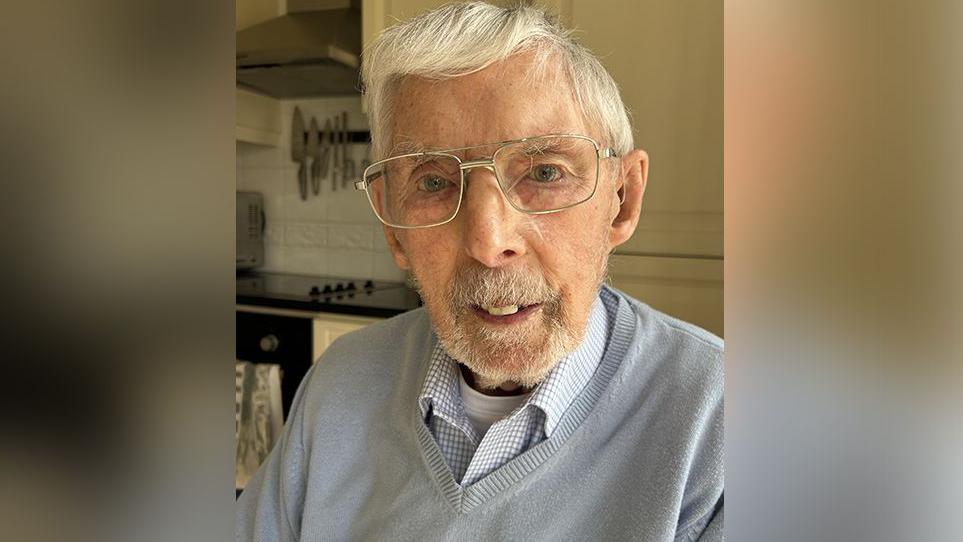'I saw the horrors in Hiroshima after the atomic bomb'
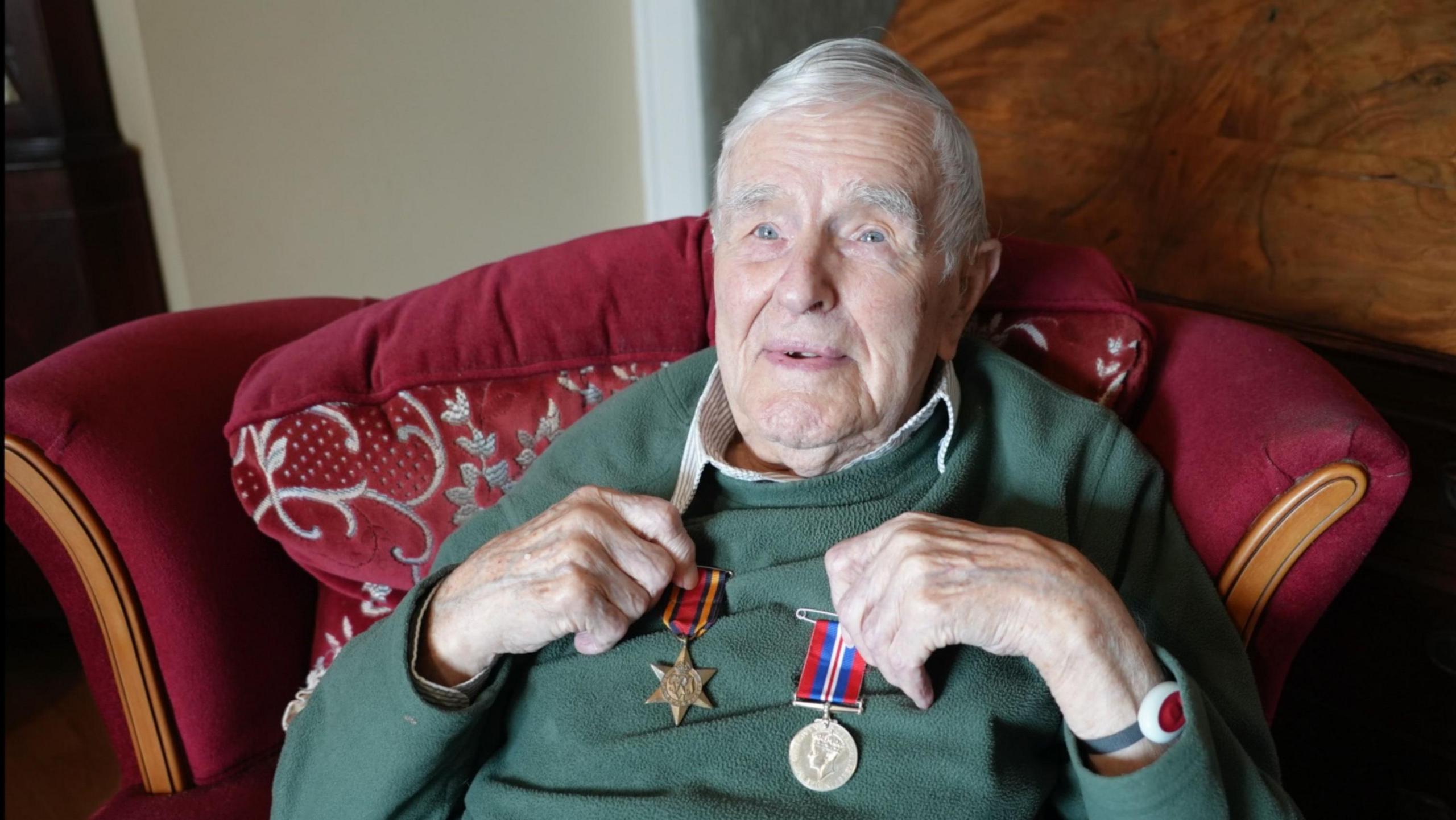
Duncan Hilling was awarded war medals including the Burma Star
- Published
"It really was absolutely hideous."
Duncan Hilling was one of the first British soldiers to see the aftermath of the atomic bombs in Japan in 1945.
The 99-year-old World War Two veteran, from Saundersfoot, Pembrokeshire, served with the Royal Welch Fusiliers and described the "horror" of the devastation in Hiroshima and Nagasaki.
Now, he has been presented with a letter of thanks by Wales' first minister, Eluned Morgan, to mark 80 years since Victory over Japan, recognising "the sacrifice, the contribution and service" he made.
Although Germany surrendered on 7 May 1945, the war continued in the Asia-Pacific region.
Hiroshima marked the first use of the atomic bomb in a war when, on 6 August 1945, the American B-29 bomber the Enola Gay dropped Little Boy over the skies of the city.
It contained the equivalent of 15,000 tonnes of TNT and devastated an area of five square miles (13 sq km).
What is VJ Day?
- Published14 August 2020
Why Hiroshima and Nagasaki are safe to live in today
- Published8 August
Mr Hilling, who joined the RAF in April 1944 before being transferred to the Army and serving in India in 1945 before his regiment went to Japan, said: "We went to Hiroshima and saw the horror of the atomic bomb.
"Blind people were being led around and there were still dead bodies lying in the streets."
Japan, however, did not surrender and three days later the Americans dropped another atomic bomb on Nagasaki, before the country surrendered on 14 August.
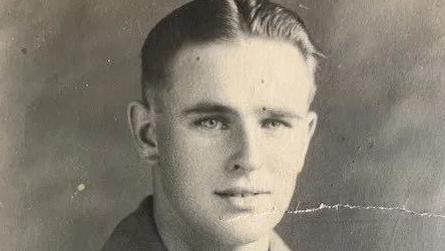
Duncan Hilling sent this photograph home to his parents while he was in Japan
Mr Hilling visited both cities, including going to schools turned into makeshift hospitals.
"We saw people who were totally blind, and their hands and skin were burnt," he said.
"To me it was horrible, the newspapers described an atomic bomb, but it doesn't describe the people or what they looked like.
"I really hope it never happens again."
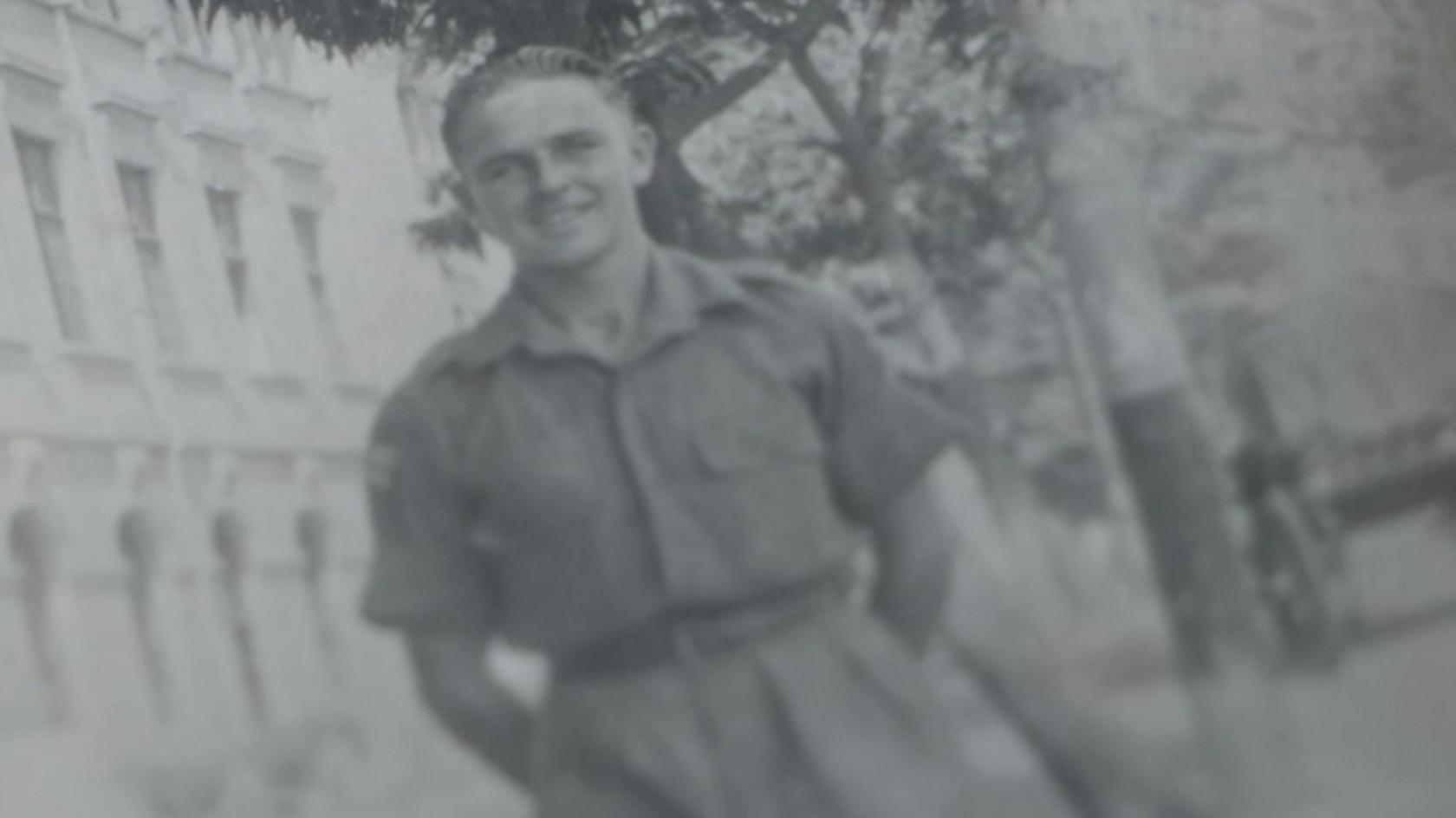
Duncan Hilling served in India in 1945 when he was 19 years old
Mr Hilling saw the devastation the bombs had unleashed: "In Japan 90% of the houses were wooden and they were all burnt."
He and his regiment stopped to talk to people on the street and described them as "friendly".
"We asked them what they remembered of the bomb, they said they didn't remember anything - just a horrific flash and that was it and they'd lost their sight and couldn't remember past that point."
The estimated recorded death tolls are thought to be about 140,000 of Hiroshima's 350,000 population and at least 74,000 in Nagasaki.
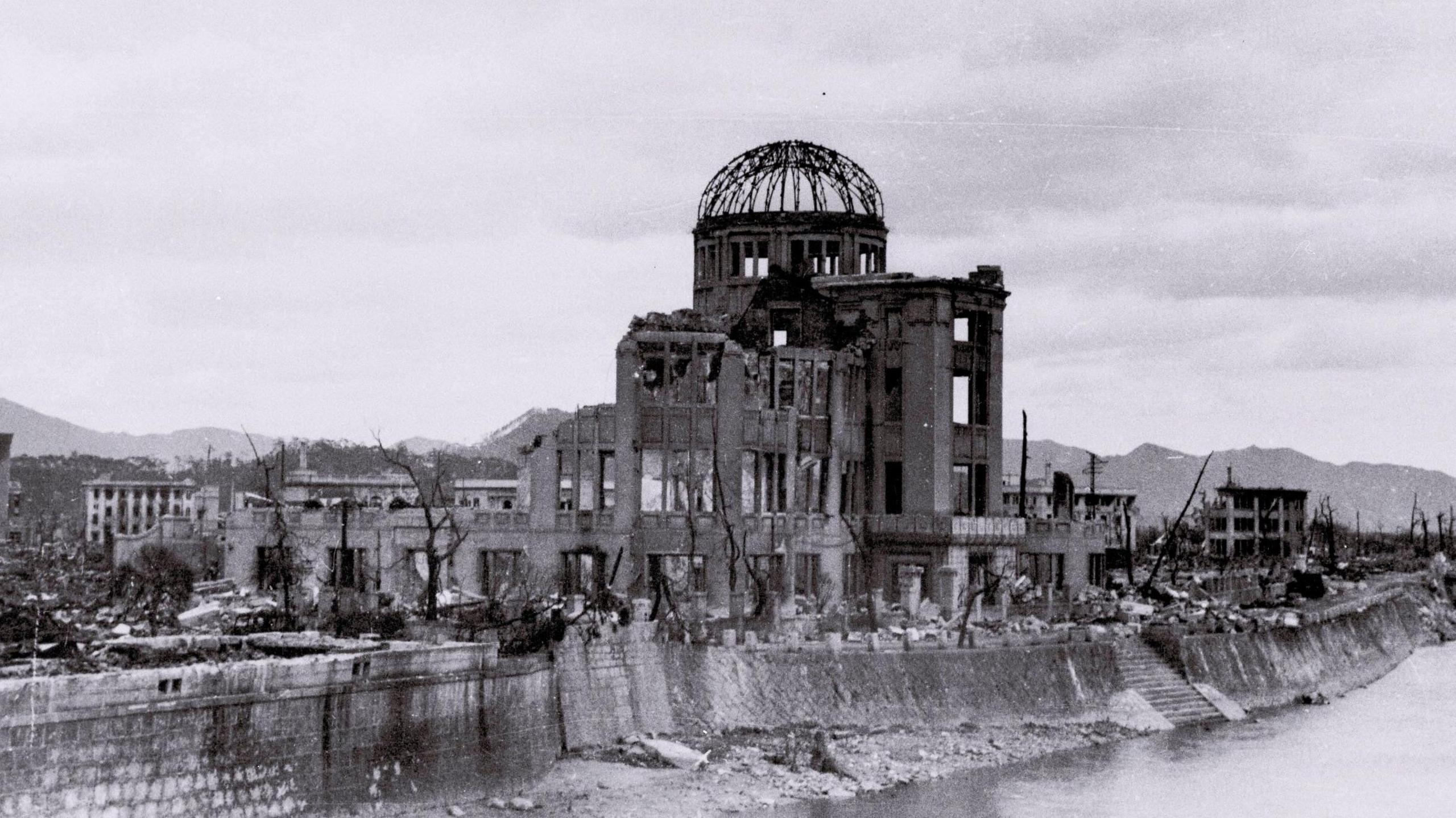
The Hiroshima Prefectural Industrial Promotion Hall, now known as Atomic Bomb Dome, was the only structure left standing in the area where the bomb detonated
The nuclear radiation released by the bombs caused thousands more people to die from radiation sickness in the weeks, months and years that followed.
Mr Hilling said he lost several members of his regiment years later who had taken "souvenirs" from the bomb sites.
"I didn't take any souvenirs, but nobody ever mentioned the fact that radiation was a problem and three boys from the regiment who were with me at the time took some things away from the site. They all died of cancer in their 30s and 40s."
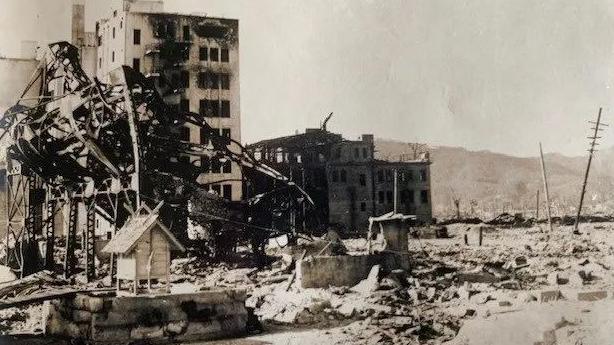
Duncan Hilling took this photograph of Hiroshima to capture the devastation in the city
Two days of national holiday were announced for celebrations in the UK, US and Australia after the surrender of Japan, with millions of people taking part in parades and street parties.
Mr Hilling celebrated in India before heading to Japan.
"We sang Cwm Rhondda, it was very exciting to celebrate it in that way," he said.
"It must have been different to any other regiment, I can't think of anyone else who celebrated by singing hymns."
From Japan, Mr Hilling was drafted to Malaya for the so-called Malayan emergency, a communist-inspired revolt against the British.
"It's an eerie feeling of walking through the jungle and you can't look behind. You just feel at any moment you could get a bullet in your back," he said.
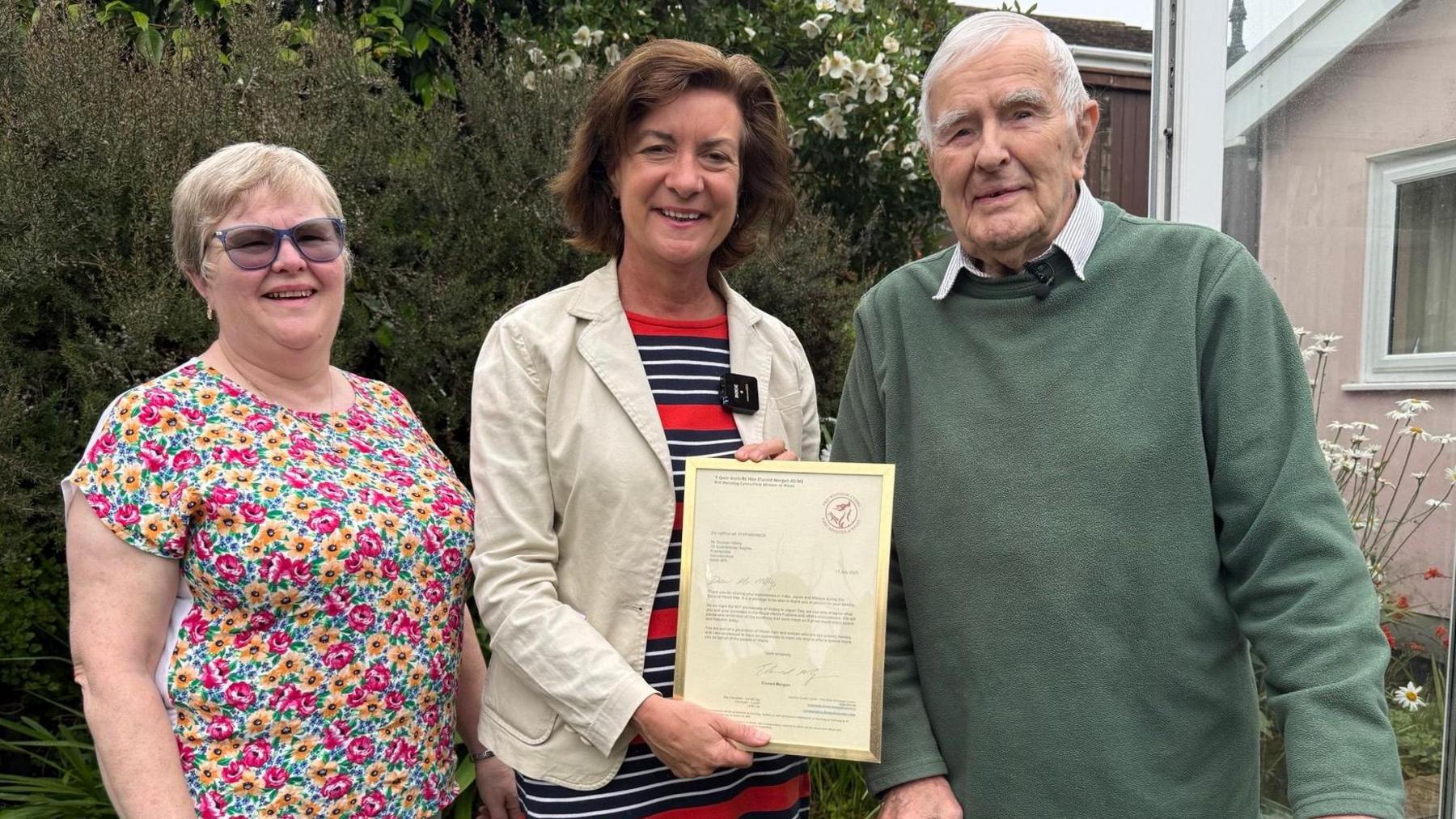
Eluned Morgan presented Duncan Hilling, accompanied by his daughter Miranda, with a letter of thanks for his service in World War Two
Morgan said the letter of thanks, presented to Mr Hilling at his home, recognised "the sacrifice, the contribution and service that Duncan made," adding "he is of course a representative of a whole generation, no longer with us".
She added: "It was the end of a really difficult time and it was lovely to hear Duncan talk about the joy when they heard the end of the war had occurred.
"It is important that we remind the children of today of the cost of war and why it's important to listen to witnesses like Duncan and know why we try and avoid it at all costs."
Related topics
- Published13 August
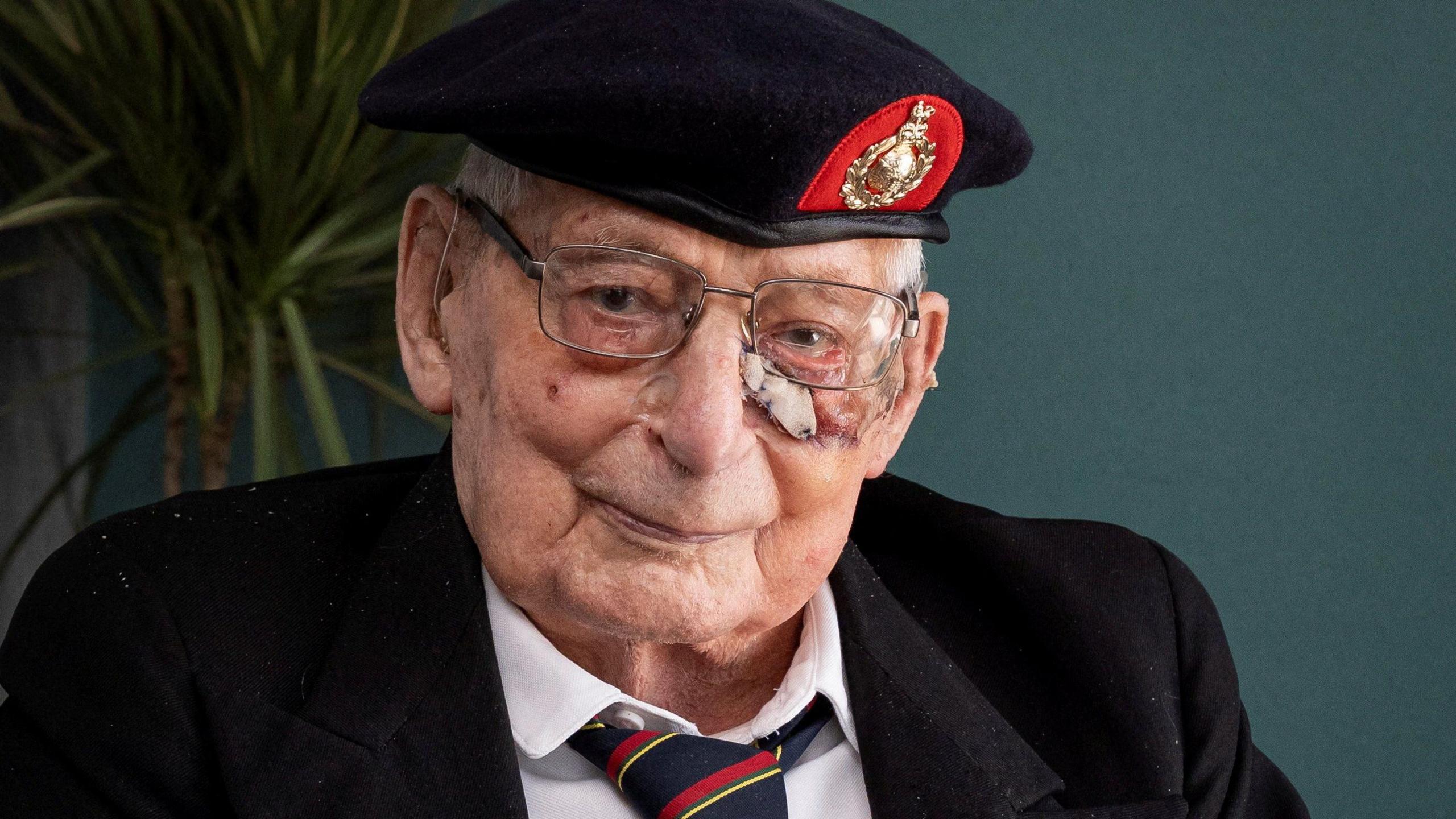
- Published11 August
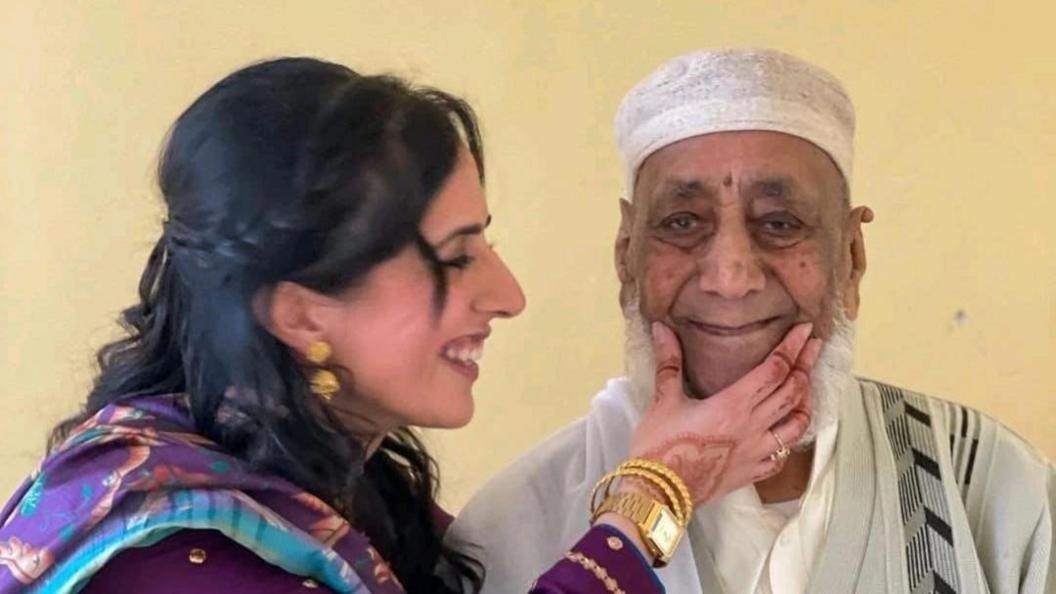
- Published7 May
